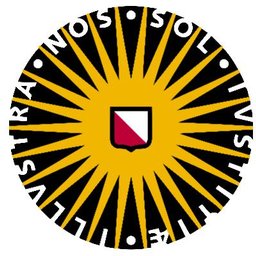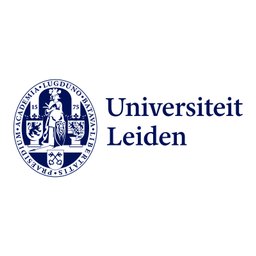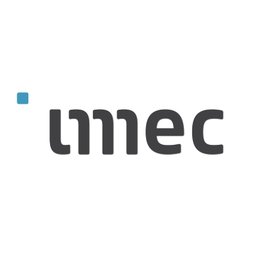We are looking for a highly motivated postdoctoral researcher in Geoinformatics, Artificial Intelligence, GeoAI, Ontology Engineering to join the ERC-funded project GeoTrAnsQData at Utrecht University. The project aims to develop theory as well as novel methodology for transformative geographic question answering based on conceptual transformation graphs, semantic workflows, and AI-based reasoning over geodata repositories.
Your job
Answering spatial questions with geodata is a core task across domains like urban planning, sustainability, and public health. Yet, current Geographic Question Answering (GeoQA) tools typically return factoid answers, datasets or maps rather than help users construct meaningful spatial analyses.
Most geographic questions data scientists may want to answer require some form of geo-analytical transformation of maps. Answer maps need to be (re)generated from data, rather than retrieved from storage. The GeoTrAnsQData project addresses this challenge by developing a novel GeoQA methodology that interprets geographic questions into executable geo-analytical workflows which transform geodata repositories into possible answer maps. In the project, we develop knowledge graph models of such transformations that are self-describing when applied to existing map repositories, and can be scaled up to large data repositories using state-of-the-art AI methods. In this way, GeoQA becomes independent from the data stored in a particular database and instead allows users to explore the space of possibilities of reusing maps for various purposes as specified in a question.
You will be leading the development of the core computational mechanism for this novel GeoQA system. In this project, you will:
- design and test conceptual or cognitive models for geodata sources and geo-analytical transformations;
- design and implement algorithms that parse geographic questions into conceptual transformation graphs;
- develop graph-based methods (e.g. knowledge graph embedding, graph neural networks) to match questions to relevant geodata workflows;
- integrate semantic web technologies (e.g. RDF, SPARQL, OWL), large language models and graph neural networks into the reasoning pipeline;
- build a prototype system that supports interactive workflow synthesis and question answering;
- collaborate with a technical assistant and two PhD candidates working on geodata/workflow modelling and question parsing;
- co-supervise junior researchers and contribute to scientific publications and open-source tooling.
This position is part of the ERC-funded project GeoTrAnsQData, which develops the foundations of a transformative GeoQA methodology through an integrated research program across geoinformatics, AI, and geography. The project is based at the Department of Human Geography and Spatial Planning, Utrecht University, and contributes to cutting-edge research on spatial reasoning, semantic technologies, and interdisciplinary AI for geosciences.
Your qualities
- A PhD in Computer Science, Artificial Intelligence, GeoInformatics/GIScience, Geocomputation or a related field;
- strong programming skills and experience with knowledge graphs, semantic web standards, or graph-based reasoning;
- a strong interest in conceptual modeling, and experience in semantic modeling, ontology engineering, formal logics or cognitive modelling;
- affinity with maps, geospatial concepts, GIS systems, and spatial data infrastructures;
- experience with AI and machine learning methods, especially in the areas of natural language processing or graph neural networks;
- the ability to work independently and collaboratively in an interdisciplinary environment;
- excellent English writing and communication skills;
- experience with leading projects, mentoring or supervising students is a plus.
Our offer
We offer:
- a position for one year with an extension to a total of four years upon a successful assessment in the first year, and with the specific intent that it results in significant scholarly contributions and leadership development;
- a working week of 36 hours and a gross monthly salary between €3,378 and €5,331 in the case of full-time employment (salary scale 10 under the Collective Labour Agreement for Dutch Universities (CAO NU));
- 8% holiday pay and 8.3% year-end bonus;
- a pension scheme, partially paid parental leave and flexible terms of employment based on the CAO NU.
In addition to the terms of employment laid down in the CAO NU, Utrecht University has a number of schemes and facilities of its own for employees. This includes schemes facilitating professional development, leave schemes and schemes for sports and cultural activities, as well as discounts on software and other IT products. We also offer access to additional employee benefits through our Terms of Employment Options Model. In this way, we encourage our employees to continue to invest in their growth. For more information, please visit Working at Utrecht University.
About us
A better future for everyone. This ambition motivates our scientists in executing their leading research and inspiring teaching. At Utrecht University, the various disciplines collaborate intensively towards major strategic themes. Our focus is on Dynamics of Youth, Institutions for Open Societies, Life Sciences and Pathways to Sustainability. Sharing science, shaping tomorrow.
Utrecht University’s Faculty of Geosciences studies the Earth: from the Earth’s core to its surface, including man’s spatial and material utilisation of the Earth – always with a focus on sustainability and innovation. With 3,400 students (BSc and MSc) and 720 staff, the faculty is a strong and challenging organisation. The Faculty of Geosciences is organised in four Departments: Earth Sciences, Human Geography & Spatial Planning, Physical Geography, and Sustainable Development.
More information
For more information about the position, please contact Dr Simon Scheider at [email protected].
Candidates for this vacancy will be recruited by Utrecht University.
Apply now
As Utrecht University, we want to be a home for everyone. We value staff with diverse backgrounds, perspectives and identities, including cultural, religious or ethnic background, gender, sexual orientation, disability or age. We strive to create a safe and inclusive environment in which everyone can flourish and contribute.
To apply, please send your curriculum vitae, including a letter of motivation, via the ‘apply now’ button.
The aimed starting date is 1 November 2025. The first round of interviews will take place in September 2025.


